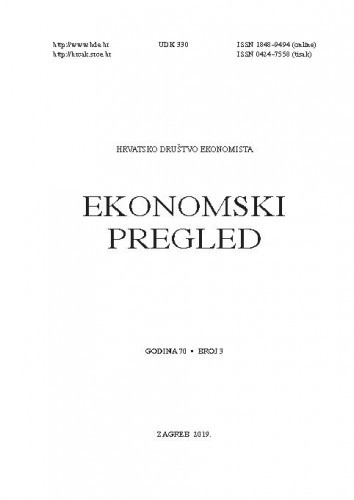The paper aims to empirically explore the impact of the Arabic Spring on the outflow of FDI in twelve selected countries in the North Africa region (Algeria, Tunisia, Morocco, Libya, Egypt and Mauritania) and the Mideast region (Bahrain, Kuwait, Oman, Lebanon, Jordan and the United Arab Emirates). The paper employs a panel data approach to exploit the time series nature of the relationship between FDI Outwards and its determinants (the market size, trade openness, government effectiveness, inflation and three dummy variables related to the Arab Spring) between 2000 and 2016. The findings revealed that the impact of the Arab Spring estimator is negatively correlated with FDI Outflows in the countries that witnessed the Arab Spring. It implies that conflicts and instability negatively affect FDI outflows. The findings of this study reveal that countries that have been affected by the Arab Spring directly (the North Africa region) experienced a greater decline of FDI outflows than countries that have been indirectly affected (the Mideast region). When the sample is restricted to North Africa it is shown that the FDI outflows may be influenced by the post Arab Spring effect, while there is no such statistically significant effect in the Mideast region. Thus, the study finds that FDI outflows in the North African countries are more determined by the effects of Arabic Spring countries than in the Mideastern countries.; Cilj rada je empirijski istražiti utjecaj Arapskog proljeća na odljev izravnih stranih ulaganja u dvanaest odabranih zemalja u regiji sjeverne Afrike (Alžir, Tunis, Maroko, Libija, Egipat i Mauritanija) i u regiji Bliskog istoka (Bahrein, Kuvajt, Oman, Libanon, Jordan i Ujedinjeni Arapski Emirati). U radu se koriste panel podaci kako bi se vremenska serija između 2000. i 2016. iskoristila za utvrđivanje odnosa između inozemnih izravnih stranih ulaganja i njegovih odrednica (veličina tržišta, otvorenost trgovine, učinkovitost vlade, inflacija i tri dummy varijable povezane s Arapskim proljećem). Rezultati su pokazali da je utjecaj procjene Arapskog proljeća negativno povezan s odljevima stranih ulaganja u zemljama koje su svjedočile Arapskom proljeću. To znači da sukobi i nestabilnost negativno utječu na odljeve izravnih stranih ulaganja. Rezultati ovog istraživanja otkrivaju da su zemlje koje su izravno pogođene Arapskim proljećem (regija sjeverne Afrike) doživjele veći pad u odljevu izravnih stranih ulaganja nego zemlje koje su bile indirektno pogođene (regija Bliski istok). Kada je uzorak ograničen na sjevernu Afriku, utvrdilo se kako na odljeve izravnih stranih ulaganja može utjecati učinak poslije-arapskog proljeća, dok nema statistički značajnog utjecaja u regiji Bliski istok. Stoga, istraživanje otkriva kako su odljevi izravnih stranih ulaganja u sjevernoafričkim zemljama više određeni učincima Arapskog proljeća nego u zemljama Bliskog istoka.
Sažetak

 Ekonomski pregled : mjesečnik Hrvatskog društva ekonomista : 70,3(2019) / glavni i odgovorni urednik Dragomir Vojnić.
Ekonomski pregled : mjesečnik Hrvatskog društva ekonomista : 70,3(2019) / glavni i odgovorni urednik Dragomir Vojnić.